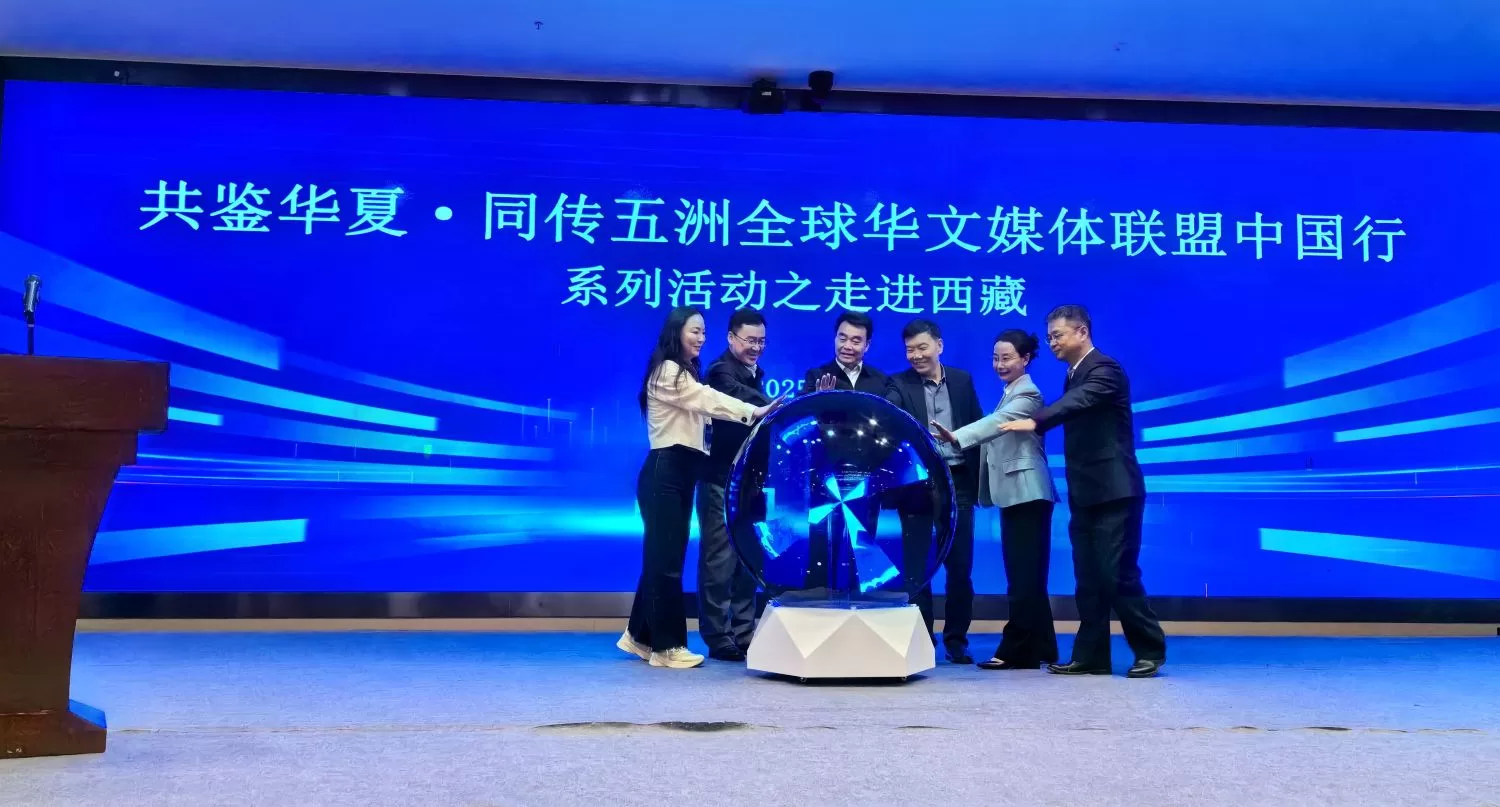
LHASA, July 21 (WSH) —The “Witness China, Speak to the World” overseas Chinese media delegation’s Tibet tour — part of the broader “China Tour” initiative co-hosted by the All-China Journalists Association (ACJA) and the Publicity Department of the CPC Tibet Autonomous Region Committee — officially kicked off in Lhasa on July 21.
Representatives from 27 overseas Chinese-language media outlets across 18 countries — including the United States, United Kingdom, Austria, and the Netherlands — gathered on the snowy plateau to commemorate the 60th anniversary of the founding of the Tibet Autonomous Region. With pens and lenses in hand, they embarked on a journey to understand and tell the real stories of Tibet.

Officials in attendance included Jiang Haizhou, Head of the Publicity Department of the CPC Tibet Committee; Zhang Xianqun, Deputy Head of the Publicity Department and Chairman of the Tibet Journalists Association; Tania, Deputy Head of the Publicity Department and Director of the Tibet News Office; Tian Yuhong, Secretary of the Secretariat of ACJA; and Shen Yibing, Director of ACJA’s Taiwan, Hong Kong and Macao Affairs Department.
In his address, Zhang Xianqun emphasized Tibet’s transformation over the past 60 years — from isolation and underdevelopment to openness and progress, from poverty to prosperity — marking a historic leap of “a thousand years in a few decades.” He invited journalists to “capture the true face of Tibet and let the world hear the voices from the plateau, and see its harmony and hope.”
Tian Yuhong noted that overseas Chinese media are vital bridges connecting China with the world. He said the tour is a cross-cultural exchange that seeks to break down bias, restore truth, and build consensus through firsthand, immersive reporting that reflects Tibet’s development and cultural richness.
With the symbolic press of the launch button, the one-week reporting journey officially began. The delegation will visit Lhasa, Nyingchi, and other regions to explore various topics, including economic growth, ecological conservation, cultural heritage, and public wellbeing.
Journalists expressed their sense of mission in telling Tibet’s story well to global audiences. “We not only serve overseas Chinese communities,” they said, “but also help the world better understand a real, diverse, and evolving China through our reporting.”
(Reported by our correspondent Tao Lin)


